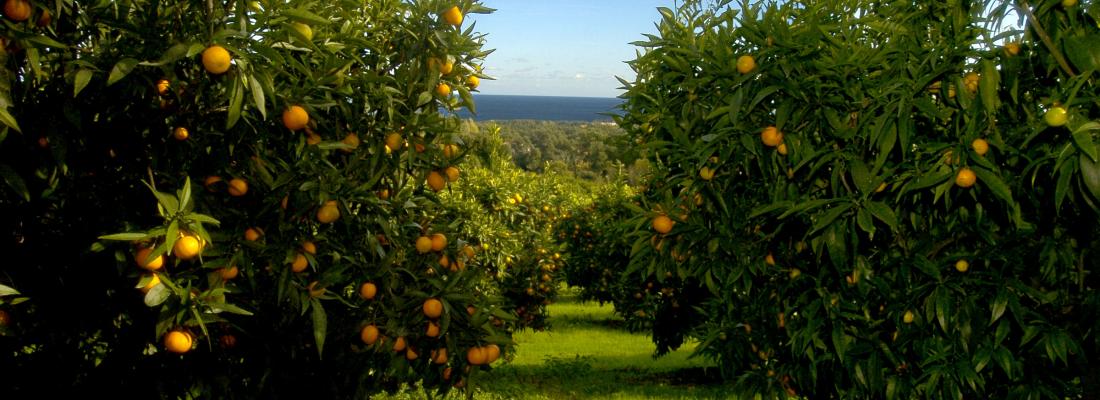Agroecology Reading time 2 min
Corsica: seeing the future in citrus
Published on 28 August 2018

With an annual production of 25,000 tonnes, the Corsican clementine is somewhat of a David against Goliath, a 2-million tonne market in Spain. The Corsican market is the product of a small but dynamic region that has overcome difficulties by choosing to focus on quality. The creation of a protected geographical indication (PGI in 2007), an investment in quality, and a shift away from a productivist model have resulted in economic success. The sector faces new challenges between now and 2040, including climate change, the emergence of new pests, and environmental issues. This foresight study, carried out as part of a French government initiative to fund agricultural and rural development (CASDAR), combined with support from INRA1, provides professionals in the sector with five possible future scenarios: a market affected by the rise in organic farming, the emergence of a destructive pathogen, a marketing monopoly, the arrival of mass retail in the sector, and ‘terroir’-based promotion.
These scenarios enriched discussions and planning among citrus producer organisations in Corsica.
Findings addressed three issues:
- Production: producers want a shift towards more eco-friendly production methods based on choosing genetic resources that are compatible with agroecological approaches, and see the value of diversification: new varieties of clementines and other high added-value citrus and exotic fruit such as mango and avocado;
- Sector: the need for better coordination between professionals in the sector to ensure the sustainability of the region; the need to find a balanced solution with mass retail partners;
- Consumer expectations: new consumer trends call for product innovation with strong environmental, nutritional and social benefits (e.g. local production, employee well-being).
See the Prospect'Agrum resume (in french)
1 DEPE: INRA's Delegation for Collective Scientific Expertise, Foresight and Advanced Studies
Foresight studies can be used to plan for the future by exploring a range of future possibilities in a collective and structured manner.
Prospect’agrum selected the scenario method for this study. A 16-member group of experts representing a variety of stakeholders in the Corsican citrus farming sector (producers, including organic farmers, commercial representatives, crop material distributors, PGI representation and experimental projects, consulting and research) met in San Giuliano between March 2016 and June 2017 for a series of nine participatory workshops.
At the first workshops, participants reviewed the scope and schedule of the study, as well as background information and major challenges faced by the sector. Based on this information, the group of experts then identified eight variables considered as being important for the future of Corsican citrus farming: orchards, farmers and farms, the market, crop material, commercialised products, research structuring, development and training, plus a context-based variable. Predictions for 2040 were developed for each variable and compared using a morphological box in order to build scenarios.
